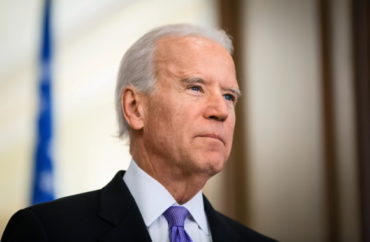
More than 60 percent of Americans would oppose student debt cancellation if it raised taxes
A majority of Americans surveyed would oppose Biden’s student loan cancellation if it led to higher taxes or had other negative effects, according to a poll published this month from the libertarian Cato Institute.
“When people are given trade-offs they have to do a cost-benefit analysis,” Emily Ekins, poll director at the Cato Institute, told The College Fix by phone.
The Cato 2022 Student Debt Cancellation National Survey, conducted with YouGov, found “64% of Americans initially expressed support for the federal government forgiving up to $10,000 in federal student loans for people who earn less than $150,000 a year or less than $300,000 per year for married couples,” according to a news release. An August poll from the Economist-YouGov found broad popular support for student loan forgiveness.
“However, support for canceling federal student loan debt plummets when Americans consider its trade‐offs,” the think tank said in its statement on its survey of over 2,000 Americans.
Sixty-four percent of Americans would oppose “forgiving $10,000 per borrower” if it would raise taxes, according to the poll.
Sixty-eight percent, including fifty-one percent of those still repaying student loans, would oppose the bailout if it “primarily benefited higher income people,” according to the poll.
Additionally, seventy-one percent of Americans, including a majority of current debt holders, would disapprove of the debt cancellation if it “meant more employers would require college degrees even if not needed to do the job,” according to the poll.
“People are empathic, they do not want to cause harm to other people just to receive a benefit themselves,” Ekins said regarding the credit inflation trade-off.
Democrats and Republicans varied in their response to potential bailout trade-offs, the poll also found.
“Without considering trade‐offs, Democrats strongly support (88%) federal student debt cancellation, as do a majority (58%) of independents,” according to the executive summary. “However, Republicans oppose about 2 to 1, with 63% opposed.”
“A majority (56%) of Democrats would continue to support student debt cancellation even if it raised taxes,” the summary continued. “But Democrats turn against forgiving $10,000 in student debt per borrower if doing so meant colleges would raise their prices (67%) or if it led to credential inflation (64%).”
The Biden administration announced in August that the government would absorb $10,000 (or up to $20,000 for Pell Grant recipients) for loan borrowers making less than $125,000 per year and households making less than $250,000.
It could cost taxpayers over $300 billion according to initial analysis from researchers with the University of Pennsylvania’s Wharton Budget Model though later estimates have put the amount above $500 billion.
This plan is especially popular among Americans who currently have student loans (80 percent support), according to the executive summary.
However, the Cato poll demonstrated that when American consider certain factors, they may be inclined to view the action differently.
Ekins did not rule out the possibility that the loan cancellation was a politically motivated move. “Many people think this is timed to gin up support among young Americans and get them to the polls,” she said.
MORE: Majority of voters ‘less likely’ to support candidates pushing student loan forgiveness
IMAGE: Drop Of Light/Shutterstock
Like The College Fix on Facebook / Follow us on Twitter





Please join the conversation about our stories on Facebook, Twitter, Instagram, Reddit, MeWe, Rumble, Gab, Minds and Gettr.